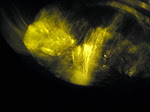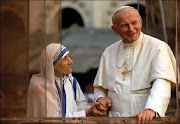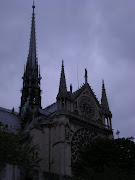by Peter Kreeft - Ignatius Press Books
"Man is not the lord of beings. Man is the shepherd of Being. Man loses nothing in this "less"; rather, he gains in that he attains the truth of Being. He gains the essential poverty of the shepherd, whose dignity consists in being called by Being itself into the preservation of Being's truth." (Martin Heidedegger in Letter on Humanism, 1964)
Heidegger begins question: ''Why is there anything rather than nothing?
He speaks of three moods that raise this great question. They are three metaphysical moods, three moods that reveal not just the feelings of the individual but also the meanings of being. And these three are the three metaphysical moods that give rise to the three philosophies of life that we find in Ecclesiastes, Job, and Song of Songs. Heidegger says,
"Why is there anything rather than nothing?"...Despair is Job's mood. His suffering is not only bodily but also spiritual. What has he to look forward to except death? He has lost everything, even God--especially God, it seems.God is certainly all powerful and all loving; one of the reasons there is suffering is that his people have violated his law or gone against his will, and he is bringing suffering upon them to force them to return to him and lead righteous lives. This kind of explanation works well so long as it is the wicked who suffer. But what about the wicked who prosper while the ones who try to do what is right before God are wracked with interminable pain and unbearable misery? How does one explain the suffering of the righteous? For that, another explanation needs to be used (for example, that all will be made right in the afterlife—a view not found in the prophets but in other biblical authors). And so it goes.
Many men never encounter this question, if by encounter we mean not merely to hear and read about it as an interrogative formulation but to ask the question, that is, to bring it about, to raise it, to feel its inevitability.
And yet each of us is grazed at least once, perhaps more than once, by the hidden power of this question, even if he is not aware of what is happening to him. The question looms in moments of great despair, when things tend to lose all their weight and all meaning becomes obscured. Perhaps it will strike but once like a muffled bell that rings into our life and gradually dies away. It is present in moments of rejoicing, when all the things around us are transfigured and seem to be there for the first time, as if it might be easier to think they arc not than to understand that they are and are as they are. The question is upon us in boredom, when we are equally removed from despair and joy, and everything about us seems so hopelessly commonplace that we no longer care whether anything is or is not--and with this the question "Why is there anything rather than nothing?" is evoked in a particular form.
But this question may be asked expressly, or, unrecognized as a question, it may merely pass through our lives like a brief gust of wind.
Joy is the mood of love, young love, new love, "falling in love". That is the wonder in Song of Songs: that the beloved should be; that life should be; that anything, now all lit by the new light of love, should be--as mysterious a glory as it was to job a mysterious burden.
Boredom is the mood of Ecciesiastes. It is a modern mood. Indeed, there is no word for it in any ancient language! In this mood, there is neither a reason to die, as in Job, nor a reason to live, as in Song of Songs. This is the deepest pit of all.


















.jpg)

No comments:
Post a Comment